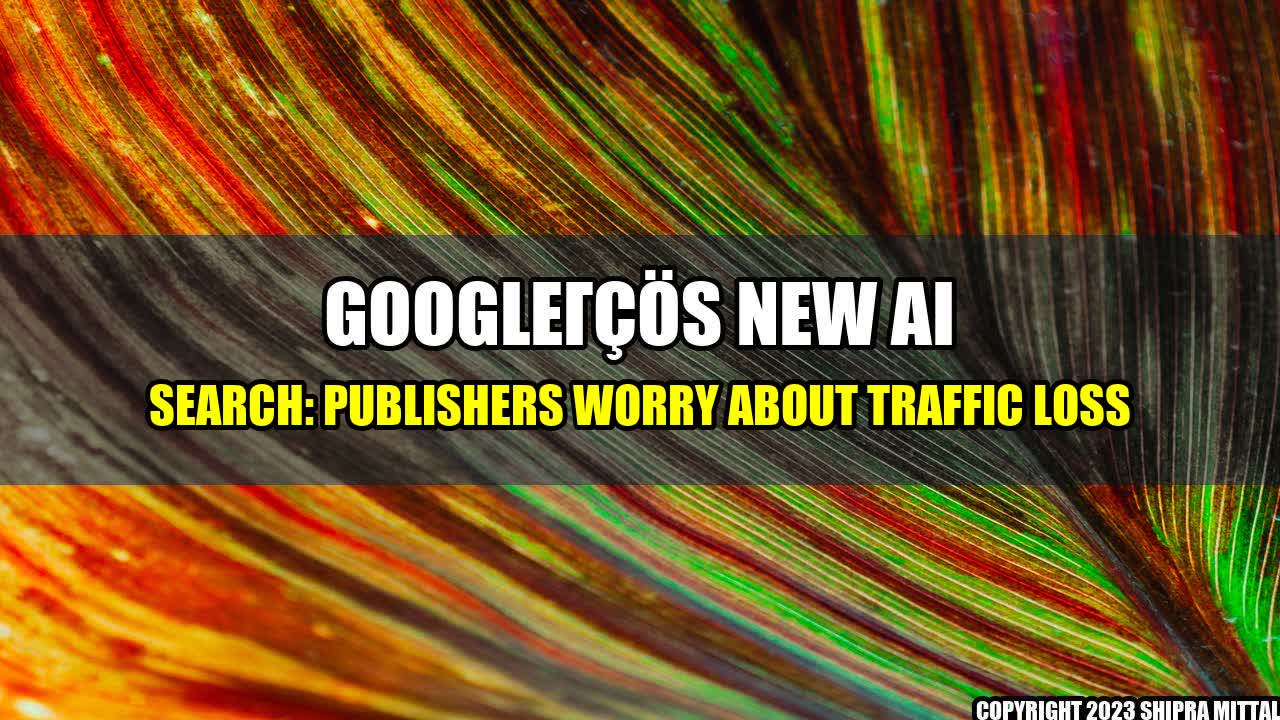
It was just another Monday morning when Jules got to her desk to see the headline on her computer screen: "Google Launches New AI Search Algorithm!" A digital marketing strategist at a publishing house, Jules knew that this could potentially change everything for her company. The algorithm was designed to provide users with more contextually relevant information, tailoring search results to what Google's AI deems as the most appropriate answer. However, with publishers relying heavily on Google for web traffic, Jules began to worry if this change would affect traffic to her company's websites.
With Google being the primary source of online traffic for many publishers, it is no surprise that a change to their search algorithm could result in major consequences. The new AI-powered search algorithm seems to understand the meaning behind a user's query, rather than just focusing on the keywords – something that could spell disaster for publishers who depend on web traffic for ad revenue.
For example, let's say a user types "Best Hotels in New York" in Google's search box. The new algorithm would interpret the search query as a question that requires a direct answer rather than a list of links to websites that talk about the best hotels in New York. This means that Google can potentially bypass publishers' sites altogether and provide its own answer, thus reducing traffic to the publishers' sites.
According to research by SparkToro, the percentage of clicks on organic search results that go back to the search results page has increased from about 10% in 2016 to around 14% in 2021. This means that more people are finding the answer they need without ever leaving Google's search results page. Furthermore, the same study shows that the percentage of clicks that go to the top 10 publishers has decreased from 22% in 2016 to around 16% in 2021.
In addition, a study by Search Engine Journal found that the click-through rate (CTR) of URLs on Google's search results page has decreased over time. In 2017, the average CTR for the top organic result was 30.59%, while in 2021, it has dropped to 25.01%. This is yet another indication that Google is becoming better at providing answers directly on its search results page.
While publishers cannot control Google's search algorithm, they can take steps to ensure their websites are more relevant and informative to users. This means focusing on creating high-quality, informative content that is optimized for user intent rather than just keywords. Publishers should also ensure that their websites are mobile-friendly, fast, and easy to navigate. These factors can improve user experience and increase the likelihood of users returning to the website rather than relying solely on Google's quick answers.
Another solution is to diversify sources of web traffic. While Google is undoubtedly the biggest source of online traffic, publishers should use social media, email newsletters, and other marketing techniques to drive traffic to their websites. Building and maintaining a loyal reader base through community engagement and networking activities can also help publishers protect their online presence against algorithm changes from search engines.
Akash Mittal Tech Article
Share on Twitter Share on LinkedIn